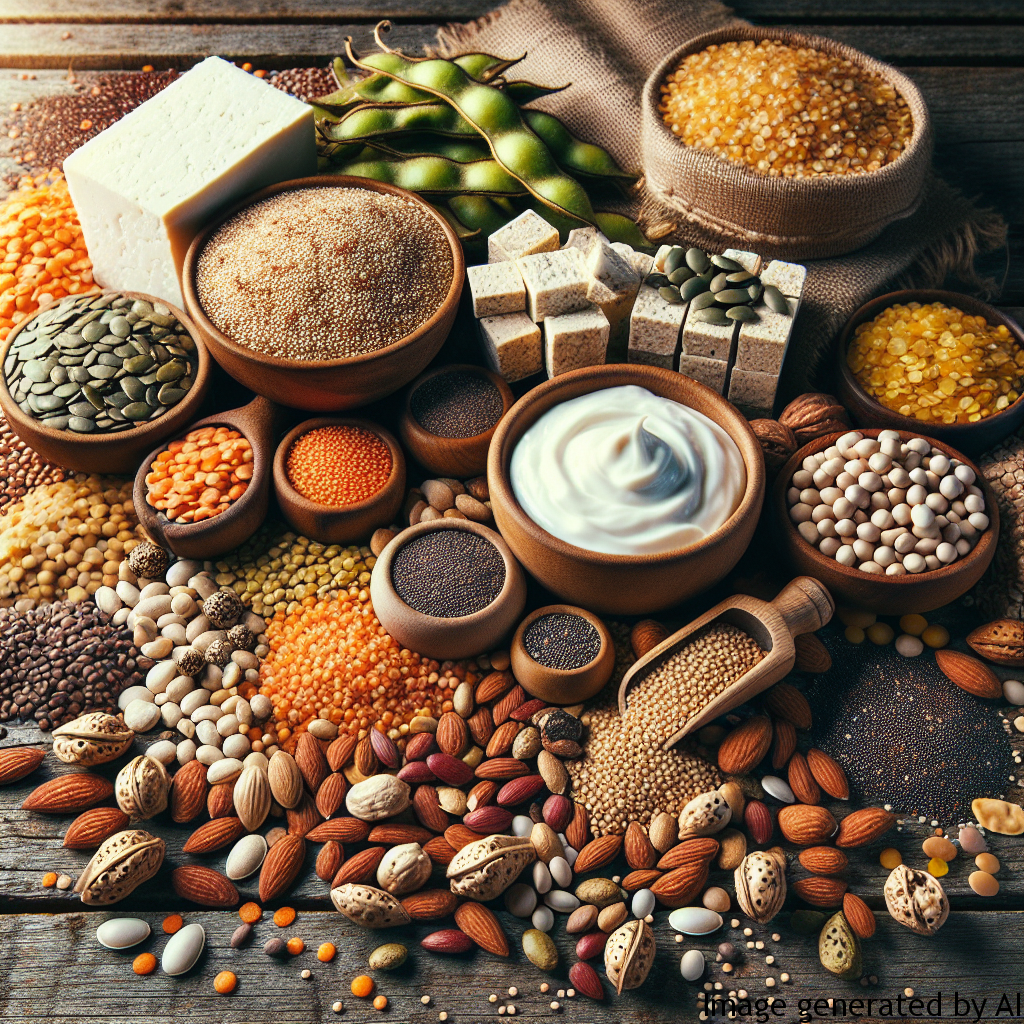Introduction
Protein is a vital nutrient that your body needs to grow and repair cells, it also plays a crucial role in maintaining good health. While meat is often high in protein, vegetarian diets usually contain less. Yet, several foods can provide the protein that vegetarians need. In this article, we’ll explore various vegetarian protein sources, their benefits, and how to incorporate them into a balanced diet.
Legumes: The Powerhouse of Protein
When thinking about vegetarian protein sources, the first thing that comes to mind for most people is legumes, a class of vegetables that includes beans, peas, and lentils.
Lentils
Lentils are a fantastic source of protein, offering about 18 grams per cup when cooked. They are full of fiber, and they can be added to a variety of dishes, from salads to soups and stews.
Chickpeas
Like lentils, chickpeas (or garbanzo beans) are high in protein. They contain around 15 grams of protein per cooked cup. Chickpeas are also a great source of complex carbohydrates and fiber.
Nuts and Seeds: A Snack Full of Protein
For vegetarians looking for a quick and easy protein fix, look no further than nuts and seeds. They may be small, but their protein content is definitely significant.
Almonds
Almonds contain around 6 grams of protein per ounce. They’re also a great source of vitamin E and magnesium.
Chia Seeds
These tiny seeds pack a big punch. Chia seeds not only contain around 5 grams of protein per ounce, but they are also among the best plant sources of omega-3 fatty acids.
Soy Products: Versatile and Protein Rich
Soy products are among the richest sources of protein in a plant-based diet. They are amazingly versatile and can be adapted to all sorts of dishes.
Tofu
Tofu is a popular choice for vegetarians and vegans alike. It contains around 15 grams of protein per half cup.
Edamame
Edamame beans are whole, immature soybeans, and they’re a great source of protein. One cup offers a whopping 17 grams of protein.
Conclusion
While meat may be off the menu for vegetarians, that doesn’t mean protein has to be. By incorporating a variety of legumes, nuts, seeds, and soy products into your diet, you can meet your protein needs and enjoy a diverse, nutritious range of foods. Remember, as with any diet, the key to good health is balance and moderation.

